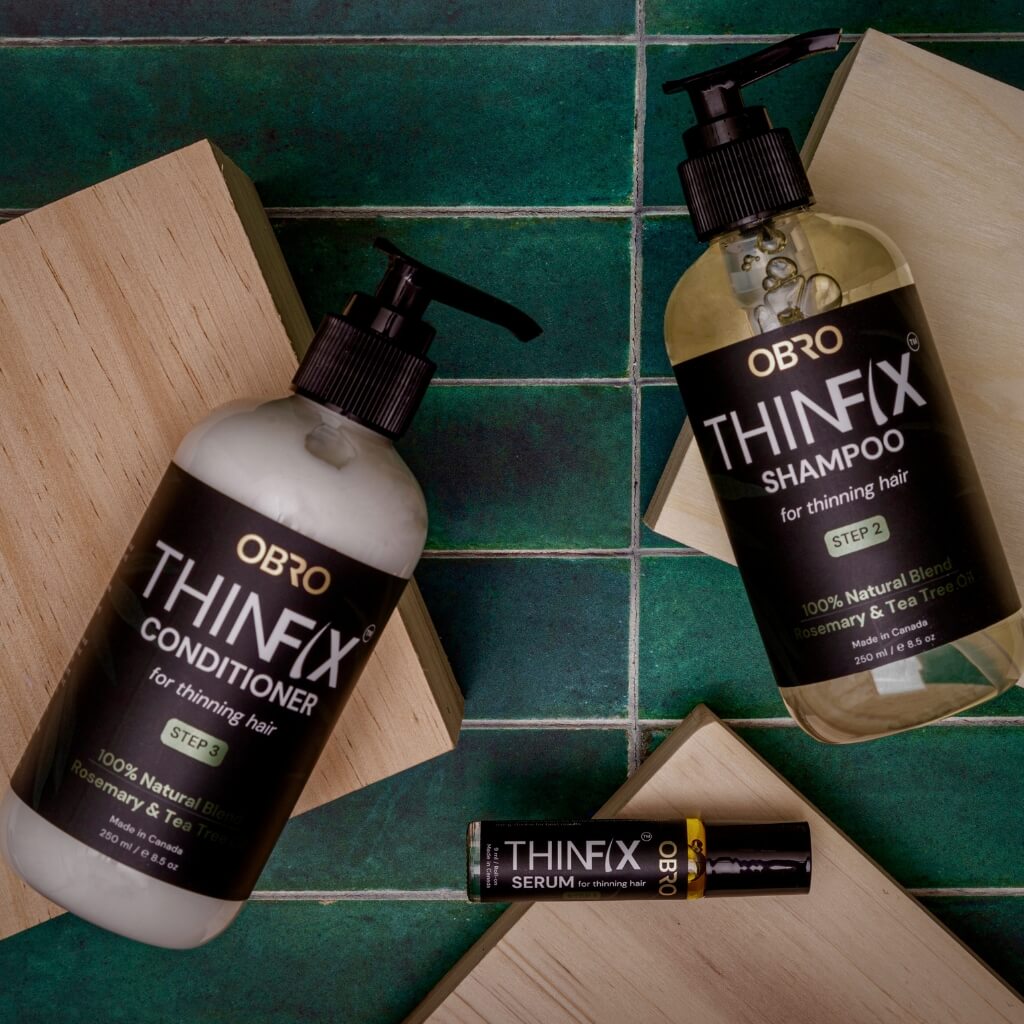Natural vs. Chemical Shampoos: What’s Better for Thinning Hair?
Thinning hair is a challenge that can arise from genetics, stress, nutritional factors, or environmental exposure. When it comes to choosing a shampoo, understanding the ingredients—and how they interact with your hair and scalp—is essential. In this post, we’ll dive deep into the world of natural and chemical shampoos to help you decide which might best support the health and volume of thinning hair.

Understanding the Needs of Thinning Hair
Thinning hair requires gentle handling. A sensitive scalp and fragile strands benefit from products that cleanse without stripping vital natural oils while also providing stimulation to the hair follicles. Whether you’re battling everyday damage or more severe hair loss, the right shampoo should work to enhance hair strength and encourage overall scalp health.

What Are Natural Shampoos?
Natural shampoos rely on botanical extracts, essential oils, and minimally processed ingredients. Their formulas avoid harsh detergents and chemical additives, making them ideal for those with sensitive scalps or hair prone to breakage. The benefits of natural shampoos include:
- Nourishment and Moisture: Ingredients like aloe vera, chamomile, and various natural oils deliver gentle hydration and essential nutrients to the scalp.
- Balanced pH and Reduced Irritation: Free from sulfates, parabens, and synthetic fragrances, these shampoos help maintain a healthy scalp environment.
- Long-Term Hair Health: With continual use, natural shampoos can help strengthen hair from the roots and reduce ongoing damage, although visible results may take time to appear.
Because these shampoos work gradually, they might not offer the instant thickening or volume boost that some chemical alternatives promise, but they lay the foundation for long-term scalp health and sustained hair growth.

What Are Chemical Shampoos?
Chemical—or synthetic—shampoos are formulated using a variety of engineered compounds that can deliver quick cleaning and immediate cosmetic effects. Common characteristics of chemical shampoos include:
-
Powerful Surfactants: These ingredients create a rich lather and remove dirt and oil rapidly. However, they might also strip away natural oils that help protect and nourish your hair.
-
Instant Volume Boost: Many chemical shampoos incorporate polymers and thickening agents that temporarily coat individual hair strands, producing the appearance of fuller hair.
-
Targeted Treatments: For thinning hair, some formulations include active ingredients such as biotin, caffeine, or saw palmetto, which have been shown to stimulate the scalp and slow hair loss in various studies.
While the immediate results can be appealing, prolonged use of chemical shampoos may contribute to dryness or irritation, especially if the formula is quite harsh. This is why many users with delicate, thinning hair find that the rapid effects need to be balanced with strategies to maintain a healthy scalp.
Pros and Cons at a Glance
| Aspect | Natural Shampoos | Chemical Shampoos |
|---|---|---|
| Ingredients | Botanical extracts, essential oils, minimal synthetic additives | Synthetic surfactants, polymers, and active compounds |
| Immediate Effects | Gradual improvement; may need consistency over time | Quick volume boost and visible thickening |
| Scalp Health | Gentle; helps maintain natural moisture and a balanced pH | Can be cleansing but may strip oils, causing dryness or irritation |
| Long-Term Benefits | Promotes sustained health, reduces damage with regular use | Targeted formulas may help with conditions like dandruff or DHT activity |
| Suitability | Best for sensitive scalps and those seeking a natural approach | May suit users looking for rapid cosmetic enhancements |
Deciding Which Option Is Right for You
The choice between natural and chemical shampoos often depends on your personal hair type, lifestyle, and overall hair care goals:
-
For Delicate or Sensitive Scalp: A natural shampoo is likely your best bet. Its gentler formula minimizes irritation and builds long-term resilience.
-
For Immediate Volume Needs: If you’re looking for an instant boost and don’t mind occasionally alternating with a milder routine, a chemical shampoo designed for thinning hair might deliver the quick results you seek.
-
Balanced Approach: Many users benefit from a hybrid strategy—using a chemical shampoo periodically to enjoy the cosmetic benefits, complemented by natural shampoos that nurture and repair over time.
Consulting with a trichologist or hair care specialist can further help tailor your routine to your specific needs.
Conclusion
Both natural and chemical shampoos have unique advantages when it comes to addressing thinning hair. Natural shampoos emphasize long-term scalp health and minimal irritation, making them an attractive option for everyday use—especially for those with sensitive hair. On the other hand, chemical shampoos can deliver immediate visual improvements by boosting volume and temporarily thickening each strand. Ultimately, the best approach may involve experimenting with both types while paying close attention to how your hair responds over time.
As our understanding of hair care deepens, more people are exploring innovative routines that combine the benefits of both worlds. Have you experimented with a hybrid routine or found that one type works better for your specific condition? The dialogue around hair care is ever-evolving, inviting us all to share experiences and learn together.





